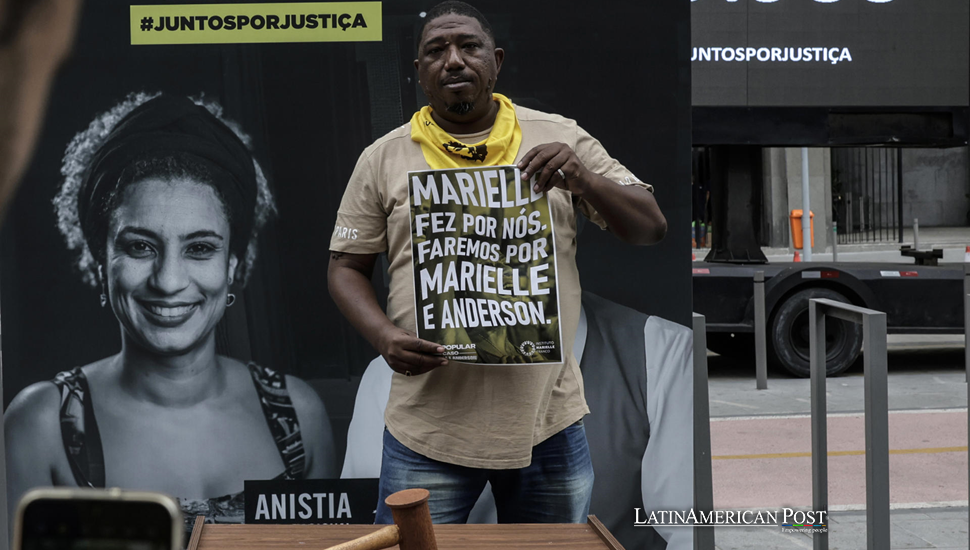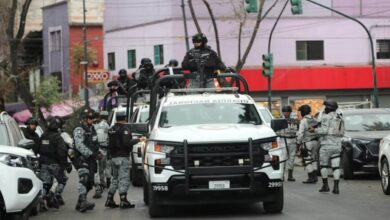Brazilian Marielle Franco’s Murder Case Sparks Fight for Justice and Change

When Marielle Franco, a young councilwoman in Rio de Janeiro, was shot dead in March 2018, the country was left reeling. By the end of the week, hundreds of thousands of Brazilians had joined dozens of protests across the country. Outside Brazil, political and cultural figures such as the ex-president of Mexico, Vicente Fox, and the actor-director Danny Glover spoke out, highlighting Franco as evidence of the deadly consequences of authoritarianism. In the past two years, the case has become more complex, with the justice system sputtering slowly along, but the question evades any easy answers: who ordered her killing, and why does her death resonate so strongly today?
The Political Legacy of Marielle Franco
They pulled up alongside the car in which Marielle Franco was sitting and unloaded 13 bullets. Four pierced her: two struck her in the head and two in her neck. The driver, Anderson Gomes, was killed as well: his killers shot him at least three times in the back. Franco was a councilwoman for Rio de Janeiro and one of Brazil’s most outspoken social activists. She spoke out against the violence plaguing Rio’s favelas, condemned the military police who supported it, and presented a political perspective that sharply contrasted with the biases of Brazil’s political elite. She posed a threat to those who benefited from the social divisions that Franco worked tirelessly to undermine. On 14 March 2018, precisely two months after the Brazilian carnival, her life was ended in a shower of bullets.
Franco’s wasn’t a random killing. She was targeted. Her murder was designed to make a voice promoting social justice in Brazil fall silent. By killing Franco’s driver as well, the attack on the philosopher was an apparent effort to silence her influence and, by example, to intimidate. Franco’s murder has been regarded as a political assassination since the attack and her public funeral. After years of investigation and ongoing public pressure, two former police officers—Ronnie Lessa and Élcio de Queiroz—were finally sentenced last week, marking a significant step toward justice. However, the sentencing raised more questions than it answered. Attention has now shifted to those believed to have orchestrated her murder.
The Crime and Its Implications
Yet, as brutal as Marielle Franco’s murder was, it was undoubtedly meticulously planned. The killer tailed her vehicle for some kilometers before pulling beside it and opening fire. Lessa (a career police officer notorious for having expert knowledge of the criminal world of Rio) shot her in the back seat while his old partner de Queiroz (another off-duty cop) was driving. It was a fast-paced, professional hit, which is how the jurors saw it, ultimately ruling it as a double homicide, attempted homicide, and illegal use of a cloned vehicle. Franco’s murderers were given very long sentences. It was a brutal reminder of the stakes for any Brazilian activist willing to rail against the system.
In plea bargains, both men confessed to the murder. In plea bargains, both men admitted to the murder, and that is how they were ultimately convicted. Still, according to Brazilian law, which prohibits life sentences, despite the near-80-year sentences doled out to Lessa – and the near-60-year sentence given to de Queiroz – both men will most likely serve no more than 30 years, maximum. The verdict was a significant victory for Franco’s supporters and family, but it was mostly not the resolution they sought. Many people following the case still hope to find the answer to a broader question: who planned the crime? And why?
The Men Who May Have Ordered the Hit
Based on these findings, the trial shifted focus, arresting the brothers Chiquinho and Domingos Brazão, who allegedly ordered Franco’s killing. For years, the Brazão brothers ran militia groups in Rio de Janeiro, which profit by charging locals for services and providing protection through terror. These groups extort funds to clean the streets and provide security during parties. Still, they also yield influence through a policy of violence – something that Franco, with her land rights activism in the poor periphery of the city, directly opposed.
A Federal Police detective, Guilhermo Catramby, who investigated the case, testified that Franco’s work on land rights directly threatened the interests of militia in west Rio. He added that her defense of rights to land in the favelas put her ‘in direct confrontation’ with the militia. The militia allegedly run by the three brothers in question, the Brazãos, are now in jail awaiting trial. The Brazãos deny the accusations. So, too, does Rivaldo Barbosa, a former chief of police in Rio, who Lessa said helped sanction the killings. If all these accusations can be proven, they’ll tear back the curtain on a complex tangle of power, violence, and corruption at the heart of the Brazilian establishment.
Marielle Franco’s Enduring Influence
But her spirit remains an inspiration to a movement across Brazil committed not only to the people she fought to protect but also to the vision of a different kind of country: one characterized by the equal rights of citizens and a pluralism that includes ‘Black lives’ as a given. Franco’s sister, Anielle, Brazil’s minister for racial equality, works to continue Franco’s fight and is joined by Marielle’s parents, Alfredo and Elzi França. Her 18-year-old daughter, Anita França, appealed for support – not to become vengeful against Franco’s murderers, but instead to continue the work their family started for Franco.
Also read: Mexico’s Absence Undermines Latin America’s Fight Against Cartel Violence
Her family and supporters see the convictions of her killers as a bitter victory in their quest for justice rather than a pathway to genuine closure. The tragic loss of Franco has ignited her supporters in their ongoing fight for truth and justice. They strive not only for justice for Franco but also for the countless others whose suffering remains overlooked. Franco’s life and untimely death highlight a tragic narrative that has come to symbolize Brazil’s persistent struggle to hold itself accountable for decades of corruption, violence, and inequality.





